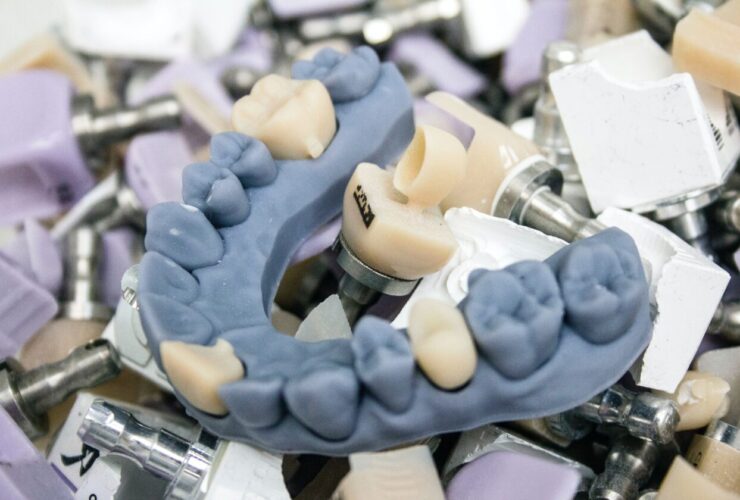Yes, green tea can leave its mark on your pearly whites. But fear not; understanding why and implementing simple strategies can help you enjoy your daily cuppa without worrying about stained teeth.
Understanding the Staining Mechanism
Like many other beverages and foods, green tea contains compounds known as tannins and acids. These substances have a knack for adhering to the surface of your teeth, leading to discoloration over time. Tannins, in particular, are responsible for the staining effect. At the same time, the acidity of green tea can further exacerbate the process by wearing down tooth enamel, making it more susceptible to staining.
Comparison with Other Teas and Beverages
When it comes to teeth staining, not all teas are created equal. While green tea certainly has its staining potential, its effects may vary compared to other types of tea. For instance, black tea leaves yellowish stains due to its higher tannin content, while herbal teas may also contribute to discoloration depending on their composition. Furthermore, beverages like coffee and red wine can also leave their mark on your teeth, albeit in different ways.
Preventive Measures
Fortunately, there are several simple steps you can take to minimize the staining effects of green tea:
- Drink Through a Straw: Using a straw can help minimize direct contact between the tea and your teeth, reducing the likelihood of staining.
- Rinse Your Mouth: After enjoying your cup of green tea, consider rinsing your mouth with water to help wash away any residual tannins and acids.
- Practice Good Oral Hygiene: Brushing your teeth regularly, especially after consuming staining beverages, can help prevent buildup and reduce the risk of discoloration.
- Consider Teeth Whitening Treatments: For stubborn stains, professional teeth whitening treatments offered by dental professionals can help restore your smile to its former glory.
Conclusion
In conclusion, while green tea may stain your teeth, understanding the underlying mechanisms and implementing preventive measures can help mitigate its effects. By drinking through a straw, rinsing your mouth, practicing good oral hygiene, and considering professional whitening treatments, you can continue to enjoy the numerous health benefits of green tea without worrying about its impact on your smile. So go ahead, sip away, and smile confidently, knowing your dental health is covered!
References
Chatterjee, A., Saluja, M., Agarwal, G., & Alam, M. (2012). Green tea: A boon for periodontal and general health. 16(2), 161–161. https://doi.org/10.4103/0972-124x.99256
Sulieman M. (2005). An Overview of Tooth Discoloration: Extrinsic, Intrinsic and Internalized Stains. 32(8), 463–471. https://doi.org/10.12968/denu.2005.32.8.463
Fatemeh Kalalinia, Amiri, N., Niloufar Mehrvarzian, Sedigheh, B., Mehrdad Iranshahi, Azadeh Shahroodi, Sepideh Arabzadeh, Mohammadreza Abbaspour, Shapour Badiee Aaval, & Jebrail Movaffagh. (2020). Topical green tea formulation with anti-hemorrhagic and antibacterial effects. 23(8), 1085–1090. https://doi.org/10.22038/ijbms.2020.41397.9782
Wikipedia Contributors. (2023, May 25). Dental plaque. Wikipedia; Wikimedia Foundation. https://en.wikipedia.org/wiki/Dental_plaque
Fadel, H. T., Alrehaili, A. M., Alshanqiti, M. M., Afnan Alraddadi, & Albolowi, A. M. (2021). Adjunctive Effect of Green Tea Mouthwash Prepared at Different Steeping Temperatures on Gingivitis: A Triple-Blind Randomized Controlled Clinical Trial. 9(12), 139–139. https://doi.org/10.3390/dj9120139
Was this helpful?

Joseph Emb, RDN
Founder of StyleVitally.com | Registered Dietitian & Wellness Advocate
What I Cover:
I’m passionate about connecting nutrition science and everyday wellness to help people live healthier, more vibrant lives. I write about evidence-based nutrition, mindful eating, sustainable lifestyles, and holistic well-being at StyleVitally.com.
My Background:
The University of Texas in Austin, where I earned my Dietetics diploma, laid the groundwork for my nutrition and health career. My training and hands-on experience taught me the science and art of using nutrition to enhance health and well-being.
Professional Journey:
I’m an RDN with lots of experience. I’ve helped people seeking tailored nutritional recommendations in clinical settings and community outreach programs. My constant learning and professional development ensure that my recommendations are always based on the latest evidence.
Ethical Commitment:
My practice prioritizes integrity. My content is transparent and objective, following the most significant ethical standards. I can give my audience unbiased advice because I’m not affiliated with food businesses or industry associations. I want to help people make informed health decisions that match their values and ambitions.
Join Me on the Wellness Journey:
Join me on the path to vitality and well-being, whether facing nutritional issues, seeking sustainable lifestyle changes, or simply wanting a better, happier you. We’ll discover how diet, mindfulness, and holistic well-being can maximize your potential.









